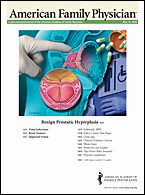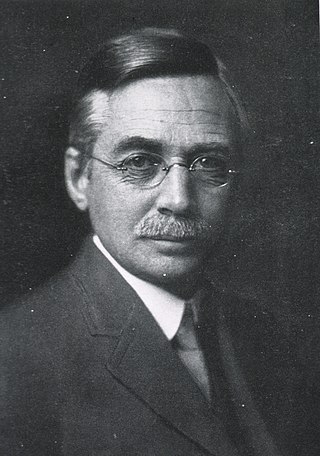
Gastroenterology is the branch of medicine focused on the digestive system and its disorders. The digestive system consists of the gastrointestinal tract, sometimes referred to as the GI tract, which includes the esophagus, stomach, small intestine and large intestine as well as the accessory organs of digestion which include the pancreas, gallbladder, and liver. The digestive system functions to move material through the GI tract via peristalsis, break down that material via digestion, absorb nutrients for use throughout the body, and remove waste from the body via defecation. Physicians who specialize in the medical specialty of gastroenterology are called gastroenterologists or sometimes GI doctors. Some of the most common conditions managed by gastroenterologists include gastroesophageal reflux disease, gastrointestinal bleeding, irritable bowel syndrome, inflammatory bowel disease (IBD) which includes Crohn's disease and ulcerative colitis, peptic ulcer disease, gallbladder and biliary tract disease, hepatitis, pancreatitis, colitis, colon polyps and cancer, nutritional problems, and many more.

The American Medical Association (AMA) is a professional association and lobbying group of physicians and medical students. Founded in 1847, it is headquartered in Chicago, Illinois. Membership was 271,660 in 2022.

The American College of Emergency Physicians (ACEP) is a professional organization of emergency medicine physicians in the United States. ACEP publishes the Annals of Emergency Medicine and the Journal of the American College of Emergency Physicians Open.

The American Academy of Family Physicians (AAFP) was founded in 1947 to promote and maintain high-quality standards for family medicine, an offshoot of the classical general practitioner. It is headquartered in Leawood, Kansas.

The American College of Physicians (ACP) is a Philadelphia-based national organization of internists, who specialize in the diagnosis, treatment, and care of adults. With 161,000 members, ACP is the largest medical-specialty organization and second-largest physician group in the United States, after the American Medical Association. Its flagship journal, the Annals of Internal Medicine, is considered one of the five top medical journals in the United States and Britain.

American Family Physician (AFP) is the editorially independent, peer-reviewed and evidence-based medical journal published by the American Academy of Family Physicians. Published continuously since 1950, each issue delivers concise, easy-to-read clinical review articles for physicians and other health care professionals.

The American Osteopathic Association (AOA) is the representative member organization for the more than 176,000 osteopathic medical doctors (D.O.s) and osteopathic medical students in the United States. The AOA is headquartered in Chicago, Illinois, and is involved in post-graduate training for osteopathic physicians. Beginning in 2015, it began accrediting post-graduate education as a committee within the Accreditation Council for Graduate Medical Education, creating a unified accreditation system for all DOs and MDs in the United States. The organization promotes public health, encourages academic scientific research, serves as the primary certifying body for D.O.s overseeing 18 certifying boards, and is the accrediting agency for osteopathic medical schools through its Commission on Osteopathic College Accreditation. As of October 2015, the AOA no longer owns the Healthcare Facilities Accreditation Program (HFAP), which accredited hospitals and other health care facilities.

The Association of American Physicians and Surgeons (AAPS) is a politically conservative non-profit association that promotes conspiracy theories and medical misinformation, such as HIV/AIDS denialism, the abortion-breast cancer hypothesis, and vaccine and autism connections, through its official publication, the Journal of American Physicians and Surgeons. The association was founded in 1943 to oppose a government attempt to nationalize health care. The group has included notable members, including American Republican politicians Ron Paul, Rand Paul and Tom Price.
The American Society of Anesthesiologists (ASA) is an educational, research and scientific association of physicians organized to raise the standards of the medical practice of anesthesiology and to improve patient care.

The Royal Australasian College of Physicians (RACP) is a not-for-profit professional organisation responsible for training and educating physicians and paediatricians across Australia and New Zealand.

The American Academy of Neurology (AAN) is a professional society representing over 40,000 neurologists and neuroscientists. As a medical specialty society it was established in 1948 by A.B. Baker of the University of Minnesota to advance the art and science of neurology, and thereby promote the best possible care for patients with neurological disorders. It is based in Minneapolis, Minnesota, with a health policy office in Washington, DC.
The American Board of Internal Medicine (ABIM) is a 501(c)(3) nonprofit, self-appointed physician-evaluation organization that certifies physicians practicing internal medicine and its subspecialties. The American Board of Internal Medicine is not a membership society, educational institution, or licensing body.

The American College of Surgeons (ACS) is a professional medical association for surgeons and surgical team members, founded in 1913. It claims more than 88,000 members in 144 countries.
The American Geriatrics Society (AGS) is a non-profit professional society founded on June 11, 1942, for health care professionals practicing geriatric medicine. Among the founding physicians were Dr. Ignatz Leo Nascher, who coined the term "geriatrics", Dr. Malford W. Thewlis, who was named the first executive secretary of the Society, and Dr. Lucien Stark who was appointed the first AGS president.
Reproductive endocrinology and infertility (REI) is a surgical subspecialty of obstetrics and gynecology that trains physicians in reproductive medicine addressing hormonal functioning as it pertains to reproduction as well as the issue of infertility. While most REI specialists primarily focus on the treatment of infertility, reproductive endocrinologists are trained to also test and treat hormonal dysfunctions in females and males outside infertility. Reproductive endocrinologists have specialty training (residency) in obstetrics and gynecology (ob-gyn) before they undergo sub-specialty training (fellowship) in REI.

Eric Jeffrey Topol is an American cardiologist, scientist, and author. He is the founder and director of the Scripps Research Translational Institute, a professor of Molecular Medicine and Executive Vice-President at Scripps Research Institute, and a senior consultant at the Division of Cardiovascular Diseases at Scripps Clinic in La Jolla, California. He has published three bestseller books on the future of medicine: The Creative Destruction of Medicine (2010), The Patient Will See You Now (2015), and Deep Medicine: How Artificial Intelligence Can Make Healthcare Human Again (2019). He was commissioned by the UK from 2018–2019 to lead planning for the National Health Service's future workforce, integrating genomics, digital medicine, and artificial intelligence.
The American Society of Clinical Oncology (ASCO) is a professional organization representing physicians of all oncology sub-specialties who care for people with cancer. Founded in 1964 by Fred Ansfield, Harry Bisel, Herman Freckman, Arnoldus Goudsmit, Robert Talley, William Wilson, and Jane C. Wright, it has nearly 45,000 members worldwide.

Choosing Wisely is a United States-based health educational campaign, led by the ABIM Foundation, about unnecessary health care.
Shashank R. Joshi is an Indian endocrinologist, diabetologist and medical researcher, considered by many as one of the prominent practitioners of the trade in India. He was honoured by the Government of India, in 2014, by bestowing on him the Padma Shri, the fourth highest civilian award, for his services to the field of medicine. He is a part of the COVID-19 Task Force for the state of Maharashtra, India.

Ludvig Hektoen was an American pathologist known for his work in the fields of pathology, microbiology and immunology. Hektoen was appointed to the National Academy of Sciences in 1918, and served as president of many professional societies, including the American Association of Immunologists in 1927 and the American Society for Microbiology in 1929. He was the founding editor of the Archives of Pathology and Laboratory Medicine in 1926 and edited several other medical journals. He was knighted to the Order of St. Olav in 1929, and in 1933, he became professor emeritus of pathology at the University of Chicago. The Hektoen Institute for Medical Research—formerly the John McCormick Institute of Infectious Diseases—now bears his name.













